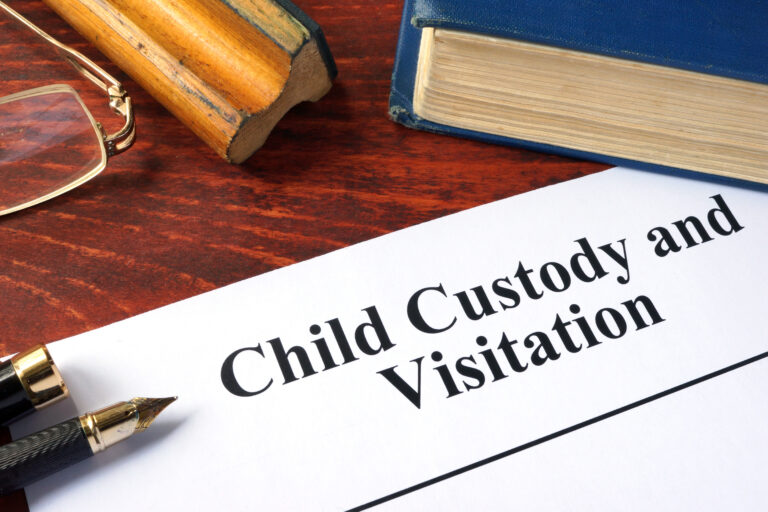- June 29, 2017
- family law lawyer, greenville sc family law attorney, upstate family law lawyer
All across the United States, family courts and laws usually have the same practices regarding child custody. Many of these same standards are reflected in South Carolina child custody laws. However, these laws are constantly changing. With these changing laws, it can be challenging for co-parents to know what is required or expected of them. It is imperative to stay current on these laws. Greenville Family Law can help you stay up-to-date on South Carolina child custody laws and how to co-parent in Greenville. We are the experienced Greenville child custody law firm.
What are the Most Common Kinds of Custody Awarded by South Carolina Child Custody Laws?
In South Carolina, just like the rest of the United States, the term legal custody refers to an individual’s legal right

and responsibility to make important decisions regarding a child’s upbringing. Joint legal custody is favored by South Carolina child custody laws. Whenever the situation is appropriate, joint custody is usually awarded. For joint legal custody, the parents must cooperate to effectively co-parent. Both parents must work together regarding all major decisions impacting their child. When a parent is given sole legal custody, only one co-parent has the right to make major decisions regarding the child.
Another term used regarding child custody in Greenville is physical custody. Physical custody gives someone the right to have physical possession of the child. Along with physical custody comes caretaker responsibilities for raising the child, such as providing shelter, food, and clothing to address the child’s needs. In South Carolina, joint physical custody is also preferred whenever permitted. That means both parents have rights to the physical possession of the child at specified times. When joint custody is awarded, the actual schedule of when and where the child stays might vary and time might not be evenly split between the parents.
Are the Co-Parents Put in Control With South Carolina Child Custody?
When it comes to custody laws in Greenville, the courts encourage the co-parents to reach an agreement regarding custody matters before they come to court. The state custody laws require that the parents create a parenting plan and submit it for approval and review by the court. Sometimes coming up with an agreeable parenting plan can be difficult if the co-parents are in conflict with one another. Sometimes a mediator will be recommended by the court. A mediator can help alleviate tension between the parents when the parenting plan is being discussed and agreed upon. If an agreement cannot be reached by the co-parents, South Carolina child custody laws and the court system will establish the custody arrangement.
How is Child Custody Determined in Greenville, South Carolina?
All across the country, child custody laws are designed to uphold the child’s best interests. South Carolina custody laws are no different. When it comes to deciding visitation, custody, and support, the court will look at the willingness of both parents when it comes to facilitating a relationship that is meaningful and continuing between the child and both parents. By seeing if the parents are willing to work together, the judge will know if the joint physical custody or sole physical custody works best for the child. Usually, family law experts see that joint physical custody is in the best interest of the child in most situations.
South Carolina child custody courts will do everything they possibly can to reduce the emotional impact on the child involved in the custody battle. Here are some of the things that are given consideration when the child’s best interests are being determined:
- The mental and physical health of both parents
- Any signs or evidence of sexual or physical abuse
- The child’s mental and physical health
- And depending on the child’s age and maturity level, the child’s preference
What are Some Other Things Involved in a Child Custody Case in Greenville?
Child support is an important part of a child being raised by parents who are separated. Child support is designed to help pay for the child’s necessities and basic living expenses. South Carolina Child Support Services, which is a Division of the South Carolina Department of Social Services. The amount of child support paid is dependent on the income of both parents and how many overnight visits are spent with each parent each year. The state website even has a calculator so that anyone with the right income figures can estimate the state required child support figures for a family.
When a couple is married, both parents are given equal duties, rights, and power regarding their children according to South Carolina law. Divorce can make a drastic change regarding child custody and the rights of the parents. If the parents have not been married to one another, custody of the child is only with the mother unless the father chooses to go to court to pursue custody of the child or children in question.
Do Grandparents Have Visitation Rights in South Carolina?
Before June 9, 2014, if a grandparent couldn’t prove he or she was a de facto custodian, he or she might be able to get visitation rights. In 2010, the South Carolina Code of Laws was amended to modify the language that provides visitation rights for grandparents. South Carolina Grandparent Visitation law allows the family court judge to establish visitation rights for the grandparent of minor children under limited circumstances.
To be granted visitation, the grandparent must either be the biological or adoptive parent of a parent of the grandchild in question. Then either the child’s parents must either be divorced, deceased, or living separately. Then the court must determine that the child’s guardians or parets are depriving the grandparent of visitation with the child, and visits must have been denied for at least 90 days. The court must be able to determine that the relationship between the grandparent and child is similar to a relationship between and a parent and his or her child.
Other stipulations include that the court must find to a higher standard of evidence that the child’s guardians or parents are unfit or that there are compelling circumstances to overcome the legal presumption that the decision of the parent to deny visitation is in the best interest of the child. If all the factors are satisfactorily met, the court can award visitation rights to the grandparent. The visitation schedule, however, cannot interfere with the relationship between the child and parent.
Are You Facing a Custody Battle or Wanting Visitation Rights?
If you are going through a custody battle or you are working with a co-parent to determine a custody plan for your child, call Greenville Family Law at (864) 729-3900. Attorney Robert Clark is experienced in South Carolina family law matters. Believing in putting the children first, he will make sure your child gets in the right custody situation.








